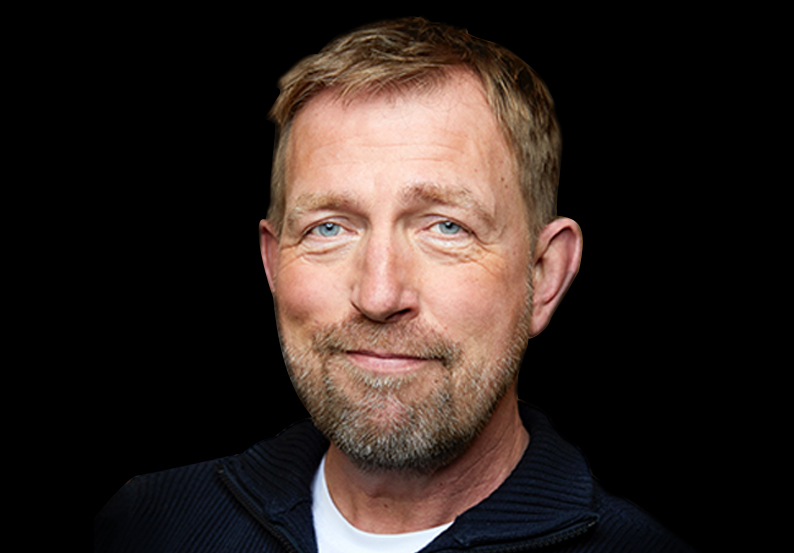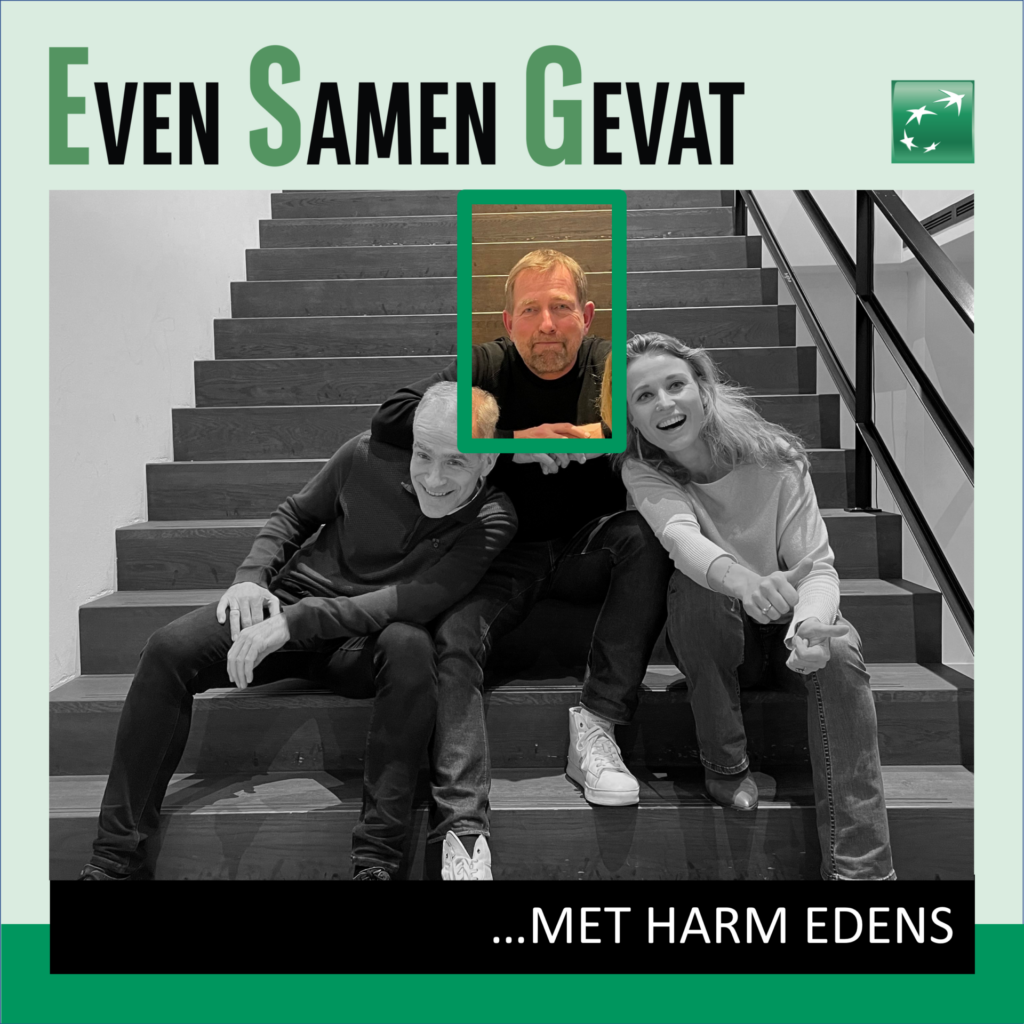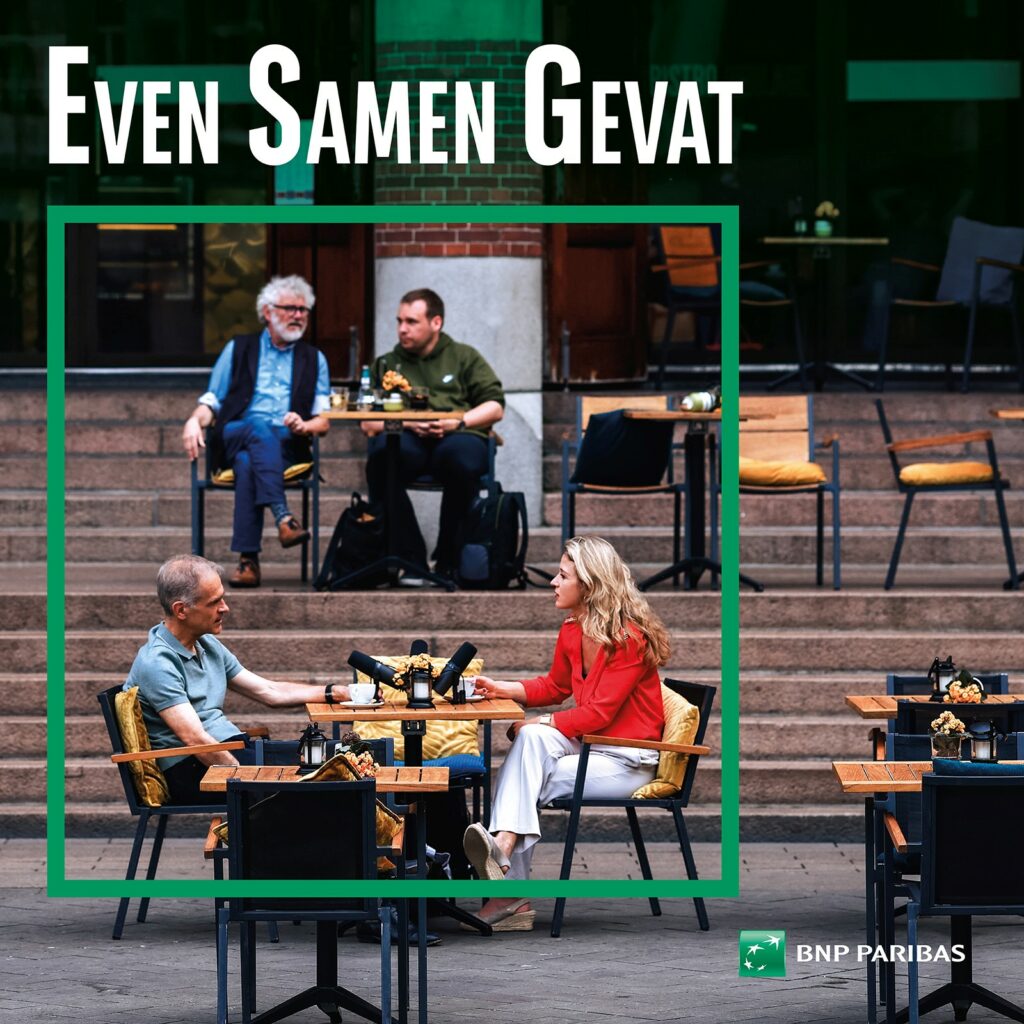In episode 20 of ESG (Even Samen Gevat) Marloes and Aldert speak with Harm Edens. We all know him, right? But apart from being a Dutch celebrity, he’s also a passionate advocate of a sustainable society.
You might know Harm Edens as the host of Dutch TV programme Dit was het nieuws (This Was the News), as an ambassador of the Dutch branch of the World Wide Fund for Nature or as a conference chairman or speaker. But it could also be that you know his voice from BNR Duurzaam, his weekly sustainability podcast. Sustainability means the world to him. He enjoys talking about it and doesn’t beat about the bush. He likes to speak his mind – and tell a good story. So now it’s our turn to try and do justice to his view of a sustainable world, based on a couple of things that Harm says during the podcast and some of his stories.
‘That’s just not acceptable any more’
Harm is convinced that we need to change how we do things but that many people do not yet fully realise how fast things are changing and what action is needed in the relatively short term. He cites the frightening consumption of raw materials: ‘We’ve used up more raw materials in the world in the past six years than in the entire twentieth century.’ All we can do now is to change how we act and introduce lots of new laws and regulations. And to tell people: ‘That’s just not acceptable any more.’ It’s Harm’s favourite line: ‘Wouldn’t it be great just to say: that’s just not acceptable any more, and that goes for everybody.’

Wouldn’t it be great just to say: that’s just not acceptable any more, and that goes for everybody.’
‘We still don’t take it that seriously’
Harm really hates it when people say stuff like: ‘China, Brazil, Japan, India: nothing’s stopping them! We’re such a tiny little country.’ Yes, this is a small country, but ‘we’re not only in the top ten countries with the most CO2 emissions per capita but we’re also one of the top five countries that will be hit by that the hardest as a delta country.’ A time will come when we’ll be getting down on our knees and begging the world: ‘can you please help us out a little if we all need to move to the Black Forest?’ While we might not take it that seriously for now, ‘it’s very dark at the end of the tunnel.’ So we need to seize the moment and ‘steer the world transport ship in a different direction’.
‘Enough of that semantic nonsense’
Harm says a lot of people talk about ‘global warming, while it’s actually a climate crisis that we’re talking about.’ The choice of words matters. The same goes for talking about growth: ‘Large companies keep harping on about green growth. If you stay stuck in the old paradigm of growth, you’ll get nowhere. Because no matter how green you are today, growth means more and more.’ Growth requires too many raw materials, and that needs to stop. ‘So you’ll need to come up with a circular model instead. In 60 years, we’ve started to consume five to six times more as a whole, but we haven’t become measurably happier. So what does that tell you?’
‘What now, I can’t even eat meat?’
Harm’s neighbours don’t speak to him any more. That’s because he thinks people shouldn’t fly as often when they go on holiday. But should you actually ban those kinds of things – such as eating meat? ‘No, you don’t want to do that’, says Harm: ‘Telling people what to do all the time.’ People themselves can also wake up and see the light. He tells about a good friend of his who always took her ‘rather spoilt adolescent son’ along on holidays to far away destinations. Right before the first Covid lockdown, he received a text message from that same friend: ‘Harm, you’ll never believe where I am? I’m riding on a pony cart through the moorlands of Dwingeloo and everything’s in full bloom.’ And in giant letters beneath that: ‘I’ve never been so happy.’ So, yeah, things can change.

‘Two tinkerers who come up with an air conditioner’
Harm tells about Dutch Climate Systems, a company in the province of Drenthe that has designed an air conditioner made out of recycled plastic: ‘And there isn’t any coolant inside – it uses water instead. It uses 92% less electricity, has fewer moving parts, hardly ever needs repairing and therefore requires no regular maintenance. It’s a real wonder.’ Certainly not what you’d call the result of tinkering. The system is a breakthrough, especially when you consider that cooling systems ‘are one of the biggest problems when it comes to CO2 emissions. If you find a fundamental way to solve that, you can suddenly reduce global emissions by 22%.’ Maybe it’s time for other ‘tinkerers’ to tackle soot particles from cruise ships, for example. That’s one of the other stories that Harm tells: about Sea Blind, a documentary by Bernice Notenboom. In that film, she shows how bad those soot particles are for the climate. Harm believes that they are responsible for 20% of the rise in temperature.
‘Slapping some faces now and then’
As much as he’d like to do it at times, ‘that’s usually not allowed.’ In his role as an ambassador of the Dutch branch of the WWF, Harm regularly runs ‘secret meetings’ with parties that are trying to find a solution to something but would rather not have the whole world know that they’re working together. Harm probably has to bite his lip on a regular basis and would actually like to slap a couple of faces sometimes, but the fact that these meetings take place does actually mean that the tide can turn. On the other hand, a recent report says that 25 multinationals, such as Volkswagen and Ahold Delhaize, will achieve only one third or less of their climate objectives in 2050.
‘Real inner motivation: that’s kind of missing for me’
Even though he fully realises that it isn’t always easy for them, Harm isn’t very positive about the actual drive for sustainability among large companies. What’s missing for him in most cases is the real will to change things. But it doesn’t have to be like that. He points to the film Beyond Zero, the story of the CEO of the world’s largest manufacturer of modular carpet who turned everything in his company upside down after reading climate guru Paul Hawken’s first book. He realised he had a ‘dirty company’ and changed direction. Now the company is CO2-positive: ‘They even remove CO2 from the air’. We need those kinds of people to really change the world: people who are intrinsically motivated to embrace sustainability. Or as Harm puts it: ‘We need people who inherently want to do the right thing.’
ESG Even Samen Gevat is a podcast series (in Dutch) in which Aldert Veldhuisen and Marloes Bergevoet talk to accelerators of the sustainable transition. They discuss topics related to the “E”, like green energy, CO2 emissions, raw materials, biodiversity, the “S” of health, diversity and inclusiveness and the “G” such as laws and regulations and international cooperation.
Also published in this series are:
- Circular farming in the city – with Peter and Minke van Wingerden
- The energy transition is also geopolitics – with Rob de Wijk
- There is life after growth – with Paul Schenderling
Follow Even Samen Gevat here so you don’t miss an episode!
